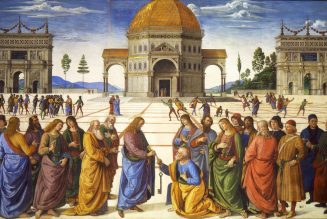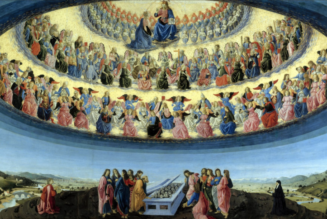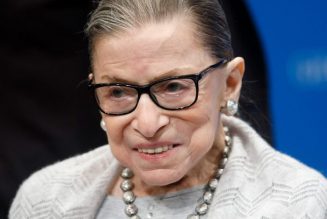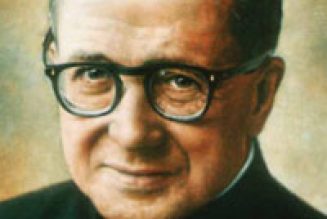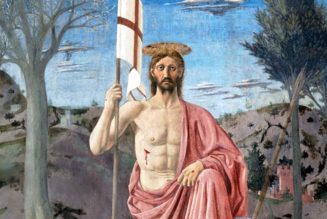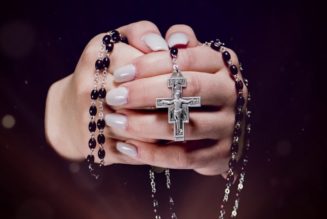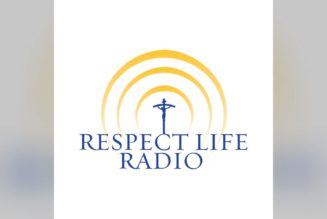By Phil Lawler ( bio – articles – email ) | Mar 03, 2023
From my personal perspective, the this week’s stunning First Things essay by Bishop Paprocki is easily the most important news story of the young year: a development that I have anxiously awaited for years.
For far too long our bishops have papered over their differences, allowing confusion and consternation to fester among the faithful, in order to preserve a façade of episcopal unity. Now at long last, an American bishop has called another bishop (a cardinal, in fact) to account.
Bishop Paprocki does not actually charge Cardinal Robert McElroy with heresy. But he does quote verbatim from the cardinal’s outrageous article in America, and he does question how those statements can be reconciled with Catholic doctrine. The imputation of heresy is no light matter. This is an unmistakable challenge: not only to Cardinal McElroy, but to all other bishops, particularly in the American hierarchy. Bishop Paprocki has posed the question: Is this sort of episcopal statement acceptable? Can the universal Church tolerate such open calls to dissent?
Recognizing that all bishops have a solemn responsibility to safeguard the integrity of the faith, Bishop Paprocki does his part. In doing so, he challenges all his brother bishops to join in the fight to preserve our faith.
As Bishop Paprocki explained in his interview with The Pillar: “I think the reason I did this is because this debate has become so public at this point that it seems to have passed beyond the point of just some private conversations between bishops.” Indeed. A serious public conversation about the limits of dissent is long overdue.
Why I Write
For the past 20 years, in my own work I have been striving to awaken Catholics to a crisis in our Church: a crisis of faith. When the sex-abuse scandal exploded, I wrote in Faithful Departed that the criminal behavior of some priests, and the unforgivable negligence of many bishops, were signs of a deeper crisis of belief. (In the mid-1990s, I predicted that the scandal would provoke the most serious crisis for the Church since the Reformation. I was interested to note that this week Cardinal Walter Kasper said essentially the same thing.)
The fundamental cause of the deeper crisis, as I have sought to explain, is the failure of many Catholics, including Church leaders, to match their actions to the beliefs they profess. Or is it, more ominously, a matter of simple hypocrisy: that too many Catholics simply do not believe the words they recite in the Nicene Creed? In the past few years, as I explained in Contagious Faith, I have been astonished and dismayed by the willingness of Church leaders to lock down churches—and deny the sacraments to the faithful—in the apparent belief that the health of our bodies is more important than the health of our souls.
If our shepherds are reluctant to take firm stands, is it any surprise that the flock has been scattered, and the wolves are running loose? It was Pope Paul VI who said, more than 50 years ago, that “the smoke of Satan has entered into the Temple of God.” I took that dire warning as the title of another book, Smoke of Satan, detailing the evidence of our crisis and lamenting the lack of episcopal leadership.
Today prominent politicians boldly sponsor legislation that promotes the destruction of innocent human life, while maintaining that they are devout Catholics. Clerics encourage young people to practice a disordered sexuality, and denigrate the institution of marriage. The open dissent, the confusion, the disregard for perennial Church teaching comes not only from the margins, but (as I wrote in Lost Shepherd) now even from the Holy See.
Signs of the Times
But perhaps there is one blessing that has come from the turmoil of the past decade in Catholicism. It is easier to read the signs of the times. Many more Catholics have awakened to the severity of the crisis in our Church. Many are angry, many are disheartened, and unfortunately, many have left. But among those who remain, there is a greater willingness to take firm stands, to make sacrifices, to challenge secular ideologies, to uphold Catholic traditions.
Bishop Paprocki is right; there is no point in pretending that all Catholics—or even all Catholic bishops—are in fundamental accord. There are serious disagreements among us, which must be addressed. Serious lay Catholics know that we are in the midst of a battle: a struggle for the future of the Church. We are ready—anxious, impatient—to join the battle. But the lay troops cannot engage effectively without their leaders.
Too often, unfortunately, the best of our bishops have avoided confrontation, counseling patience and forbearance, hoping to avoid public squabbles. Episcopal unity is surely a good thing, and public disputes are unseemly. But at what price should the obvious disagreements be muted? When the devout are disheartened, when the lukewarm are leaving, when the integrity of the faith is at risk, silence becomes complicity.
During the first few Christian centuries, public disputes were not at all uncommon. The Church grew quickly during that era; the controversies did not discourage converts. In fact the angry debates were a sign that people cared about the truths of the faith. In those times the most heated debates involved theological issues; today the contested subjects are moral teachings. But again the health of the Church—not to mention the salvation of souls—requires clarity. Do our bishops care deeply enough to break their pattern of silence?
What Comes Next?
Bishop Paprocki has raised his voice. Will others follow?
When Cardinal McElroy published his provocative essay in America, a handful of American prelates quickly answered, making their disagreements plain. In the week since Bishop Paprocki’s piece appeared in First Things, there have been no such rebuttals from “progressive” prelates. (Some liberal Catholic commentators have weighed in on social media, chastising Paprocki for being “divisive,” but not answering his arguments.) Perhaps the liberals in Church leadership calculate that if they ignore the Paprocki challenge, they can shunt him off to the margins of debate, painting him as an extremist. Perhaps they are right.
I have no doubt Bishop Paprocki recognized that danger before he submitted his piece to First Things. He knew that he would be denounced as divisive and intolerant. He knew that he could not count on support from Rome—quite the contrary, in fact. Still he felt obligated to speak out.
I also have no doubt that many American bishops are delighted with the Paprocki essay. The question now is whether they will join the battle, or leave the Bishop of Springfield, Illinois, to face the inevitable backlash alone.
Sound Off! CatholicCulture.org supporters weigh in.
All comments are moderated. To lighten our editing burden, only current donors are allowed to Sound Off. If you are a current donor, log in to see the comment form; otherwise please support our work, and Sound Off!



